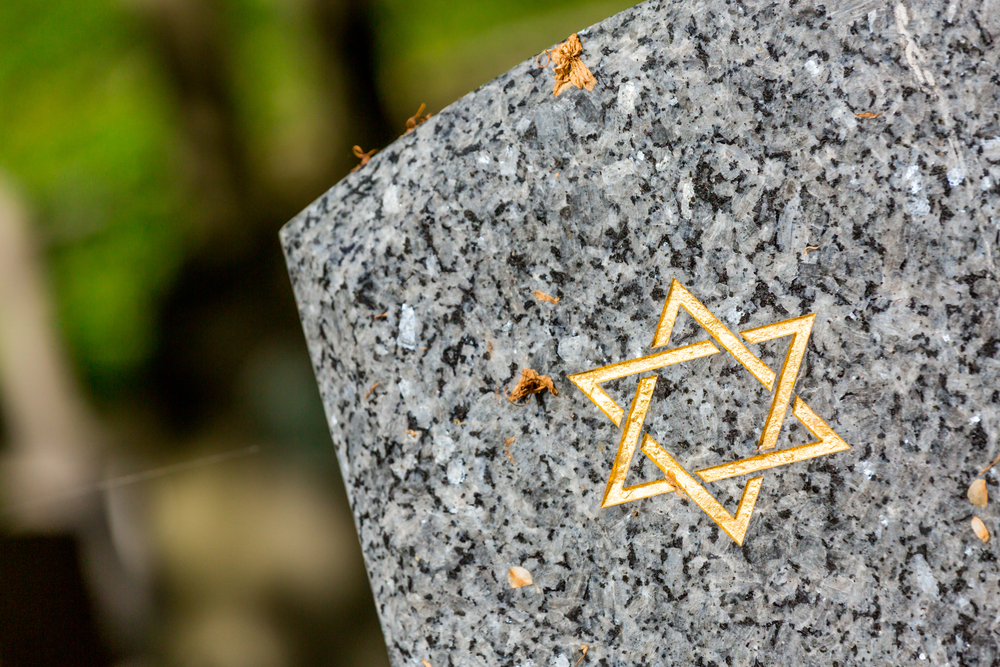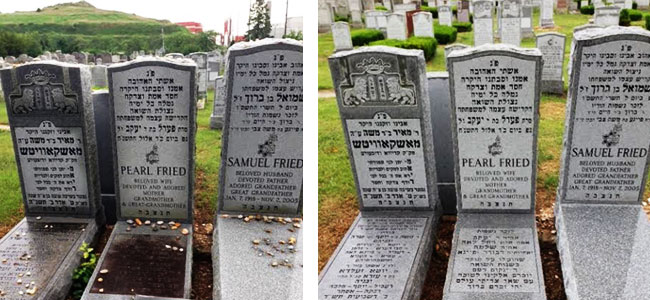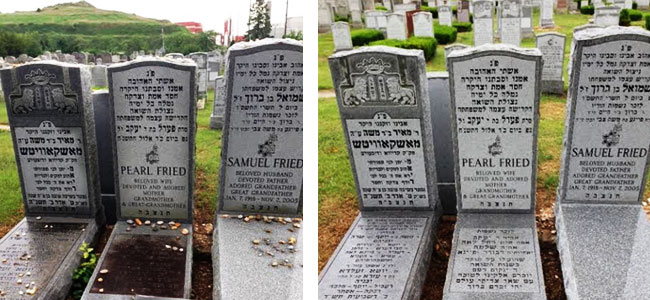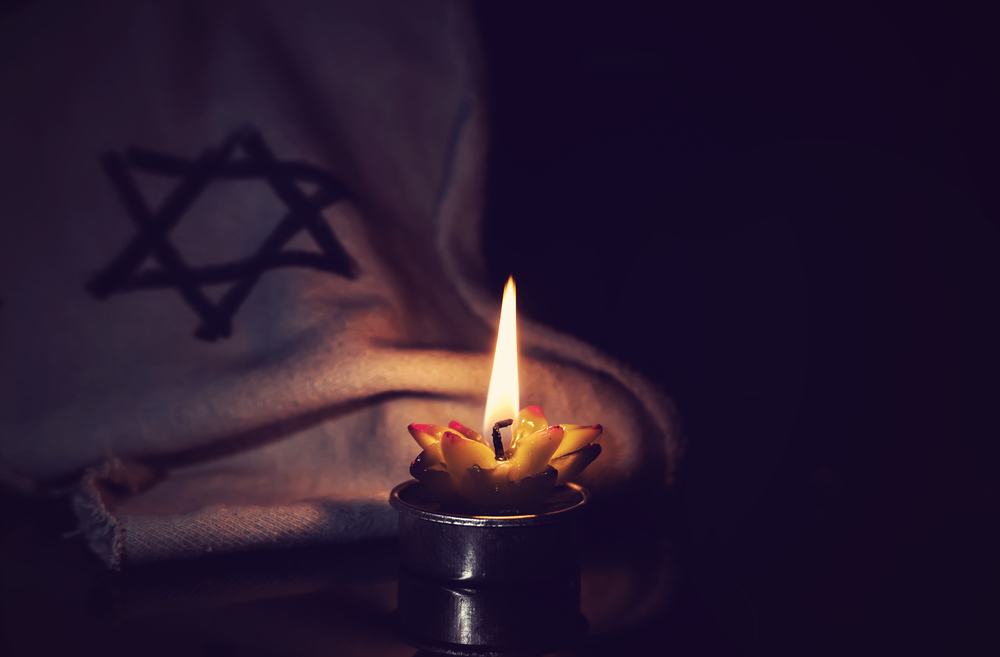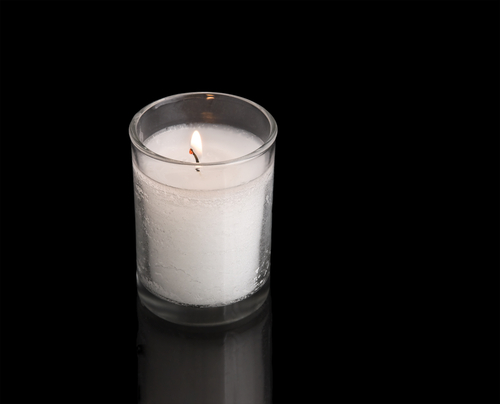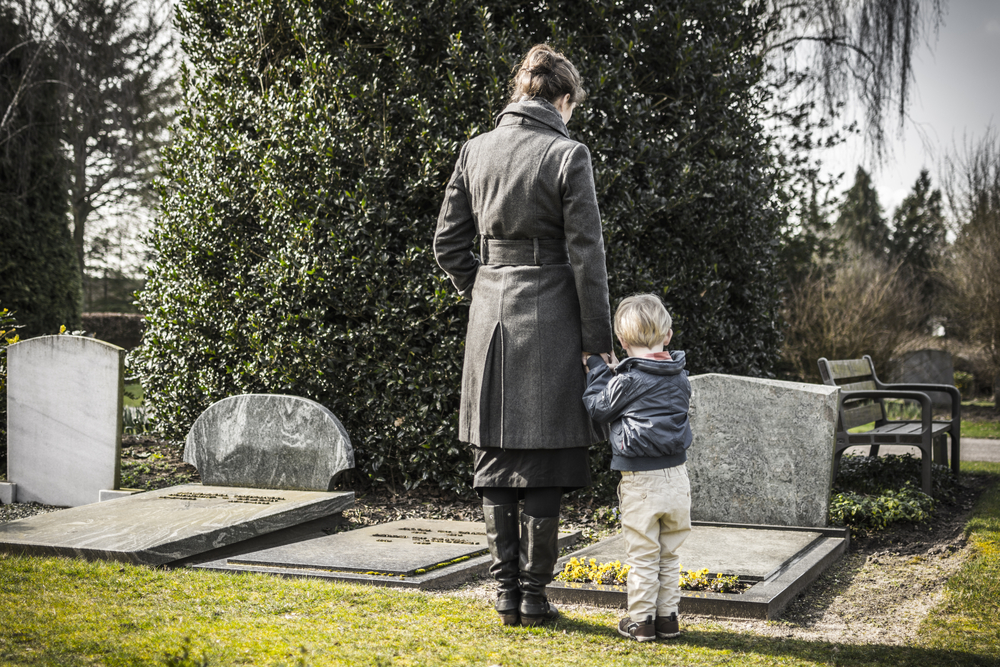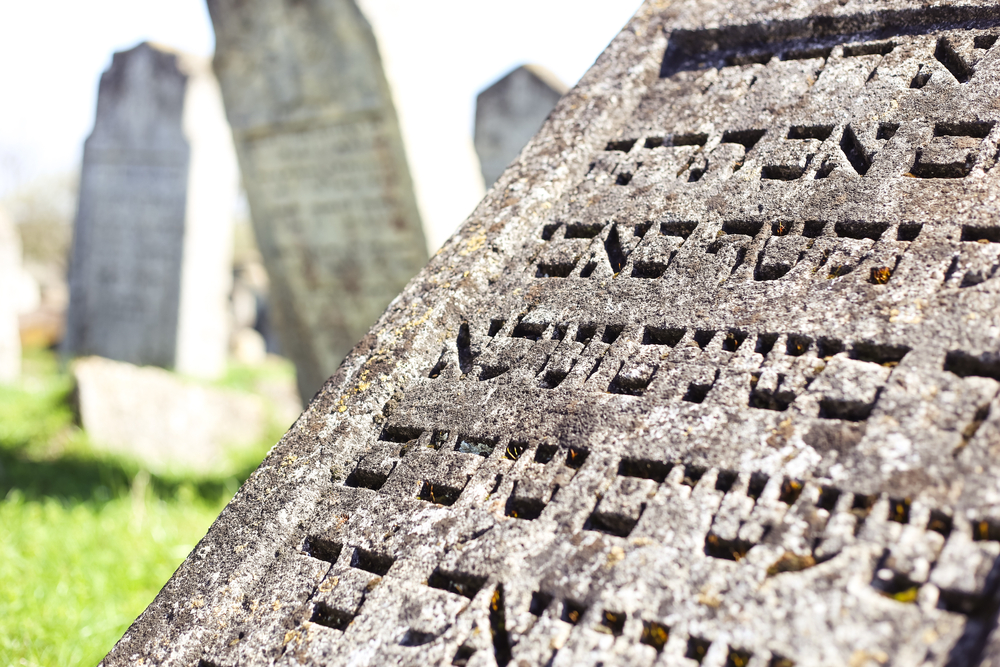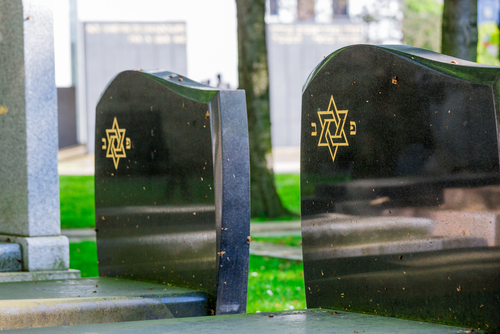
When someone in the Jewish community dies, it is important to mark their passing with a headstone. This is known as a Matzeivah in Hebrew. A Matzeivah can be simple or ornate, depending on the person’s life and death. At Fox Monuments, we specialize in creating Jewish headstones and etching inscriptions onto them. We provide monument inscription services all across New York.

What is Matzeivah?
A Matzeivah is a Jewish headstone that marks the passing of a loved one. This stone is usually placed in a cemetery and can be simple or ornate, depending on the person’s life and death. Fox Monuments specializes in creating Jewish headstones and etching inscriptions onto them. Additionally, we provide monument inscription services to existing headstones all across the Tri-State Area.
What is the Origin of the Matzeivah?
The origins of the Matzeivah date back to biblical times. In the book of Genesis, we read about how Jacob erected a stone pillar at Bethel after he had a vision from God (Genesis 28:18). This stone pillar later became known as Jacob’s Pillar or the Stone of Vision.
“And Rachel died and was buried on the way to Ephrath, which is Bethlehem. And Jacob erected a tombstone on Rachel’s grave” (Genesis 35:19-20)
Today, Jewish headstones are still made out of stone, and they often have inscriptions with the person’s name, birth date, and death date. Sometimes there will also be a quote or bible verse etched onto the headstone. The tradition of erecting a Matzeivah is deeply symbolic—it serves as both a spiritual and cultural act of remembrance, continuing a sacred practice that has lasted thousands of years.
Why is Matzeivah Important?
Matzeivahs are important because they help us remember our loved ones who have passed away. By having a physical headstone to visit, we can feel closer to them, even though they are no longer with us.
Whether you choose a monument that covers the grave, is a headstone, or a footstone, it serves two main purposes: to remember and to honor. A monument is a physical embodiment of love that will last long after we are gone. It is a way for future generations to know who we were, what we did, and how much we loved them. In Jewish tradition, the Matzeivah represents the permanence of memory and the continuation of the soul’s legacy through generations.
Inscription and Style of the Matzeivah

When you etch the inscription on a Jewish headstone, it should be done with great care and thought. This is because the words on the stone will be there forever. Think about what you want to say and choose your words carefully. The inscription should be something that will bring comfort to those who visit the grave. Additionally, it can be helpful to talk to a rabbi about what to write on a headstone.
Here are some tips for writing a monument inscription:
- Keep it simple
- Use traditional Jewish symbols
- Write in Hebrew or English
- Include the person’s name, dates of birth and death, and any meaningful phrases or quotes.
Writing a monument inscription is a way to honor your loved one and keep their memory alive. Choose your words carefully and etch them into the stone with love. Many families also include personal or scriptural messages such as “Beloved Father, Mother, and Friend” or “May His Soul Be Bound in the Bond of Eternal Life.” Each inscription tells a story and keeps a cherished legacy alive for future generations.
Traditional Jewish Symbols Found on Matzeivahs
Jewish headstones often incorporate sacred symbols that reflect faith, heritage, and the individual’s life. These engravings are more than decoration—they are spiritual markers that connect the deceased to their religious and familial identity.
- Star of David (Magen David): A symbol of Jewish identity and unity, often featured prominently on the headstone.
- Candle or Menorah: Represents the soul and the light it brought into the world. Common on women’s graves, as women traditionally light Shabbat candles.
- Hands in a Priestly Blessing: Found on the graves of Kohanim, descendants of the ancient priestly class.
- Pitcher: Commonly seen on the graves of Levites, symbolizing their temple role of washing the hands of the priests.
- Tree or Branch: A symbol of life and continuity; a broken branch can represent a life cut short.
These symbols serve as a visual representation of faith, family lineage, and personal values, creating a meaningful connection between generations.
Choosing the Right Material for a Matzeivah
The choice of stone plays a major role in the appearance and longevity of a Matzeivah. Traditionally, granite and marble are the most common materials used due to their durability and beauty. Granite, in particular, is favored for its strength, color variety, and resistance to weathering. It ensures the inscription remains legible for centuries.
Fox Monuments offers a range of materials including Barre Gray, Jet Black, and Mahogany granite. Each provides a unique look and feel while maintaining the dignity and permanence appropriate for a Jewish memorial. Our team helps families choose a stone that best reflects their loved one’s legacy and aligns with the cemetery’s guidelines.
Single vs. Double Jewish Headstones
Jewish monuments can be designed as single or double headstones, depending on the family’s wishes. A single headstone marks one individual’s grave, while a double headstone (also called a companion monument) honors two people—often spouses—side by side. Both styles can be crafted with inscriptions in Hebrew and English and incorporate shared symbols or quotes.
Double headstones are especially meaningful because they represent unity and eternal companionship, continuing the bond between loved ones even after death. Fox Monuments carefully designs these stones to balance beauty, proportion, and emotional significance.
When to Place the Matzeivah
While many assume that the Matzeivah must be placed exactly 12 months after death, this isn’t always true. In reality, it is usually placed immediately after shiva. Fox Monuments will put the headstone in place, and then the unveiling ceremony will be held after the Kaddish period—typically around a year following death.
The unveiling ceremony is a formal dedication of the Matzeivah. The rabbi will remove a veil, cloth, or handkerchief draped over the stone. The service has many elements, including the Kaddish. Additionally, the rabbi will suggest placing pebbles on the monument as a gesture of respect and remembrance. Each small act reinforces the enduring connection between the living and the departed.
How Fox Monuments Helps Families Create Matzeivahs
Creating a Matzeivah is both an emotional and spiritual process. At Fox Monuments, we understand the significance of every detail—from stone selection to engraving style. Our team works closely with families to design memorials that reflect the individuality, faith, and legacy of their loved ones. We guide you through every step, ensuring the finished monument is both beautiful and respectful of Jewish customs.
Whether you are creating a new monument or adding an inscription to an existing one, our craftsmen handle each project with precision and compassion. We have served the Jewish community across Long Island and New York for generations, helping families honor their loved ones in a way that feels meaningful and true.
Conclusion
Matzeivah is the name that the Torah uses for a cemetery monument. It serves as an important symbol of honor. The headstone is placed as a reminder of the person’s life and their connection to the Jewish people. As such an important aspect of the mourning process, it is essential to choose a Jewish monument company you can trust. Fox Monuments has decades of experience helping families create beautiful Matzeivahs. Give us a call today to get started.
Frequently Asked Questions About Matzeivahs
What does the word “Matzeivah” mean?
“Matzeivah” comes from the Hebrew root meaning “to set up” or “to establish.” It refers to the headstone or monument erected to honor and remember a deceased loved one.
Do all Jewish graves have a Matzeivah?
Yes, it is customary in Jewish tradition to mark the grave with a Matzeivah. The design and size may vary, but the purpose—to honor and memorialize the deceased—remains the same.
Can a Matzeivah include both Hebrew and English text?
Absolutely. Many families choose to include both languages on the headstone. Hebrew inscriptions often contain religious phrases or blessings, while English inscriptions provide names and dates for broader understanding.
What should be written on a Jewish headstone?
Typically, a Jewish headstone includes the person’s Hebrew and English names, dates of birth and death, and a brief inscription or prayer. It may also include traditional abbreviations such as “תנצב״ה” (an acronym meaning “May his/her soul be bound in the bond of eternal life”).
How long does it take to make and install a Matzeivah?
The process can take several weeks, depending on the stone selection, engraving details, and cemetery requirements. Fox Monuments ensures every Matzeivah is crafted with the highest quality and care, keeping families informed throughout the process.
